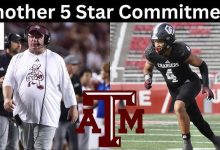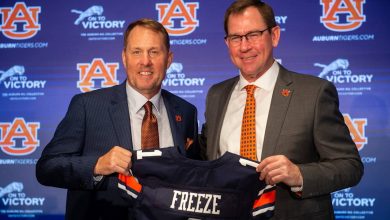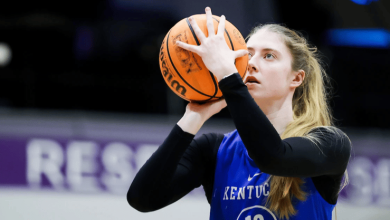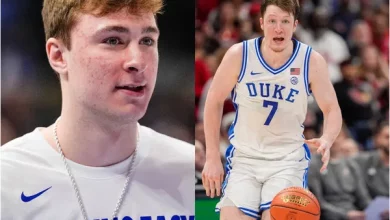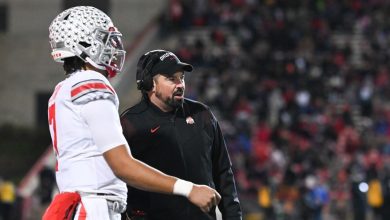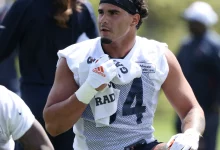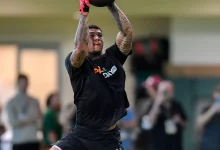Brandon Miller testified in court this morning as part of the capital murder trial for Michael Davis. Testimony included texts between Brandon Miller & Darius Miles from right before the shooting.
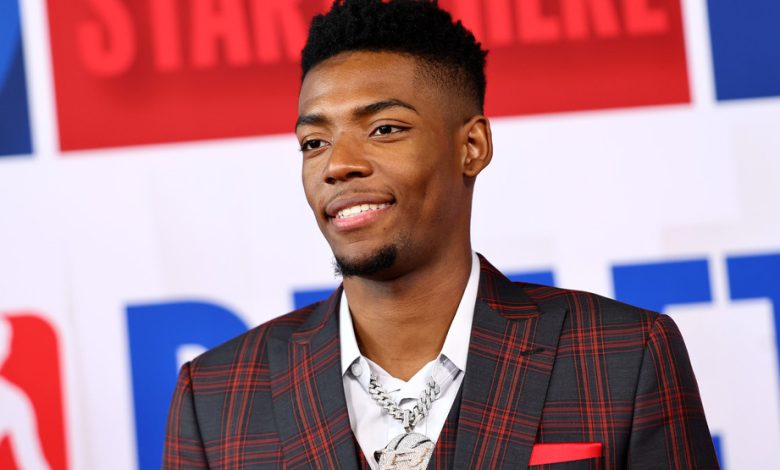
This morning, in a courtroom filled with anticipation, University of Alabama basketball star Brandon Miller took the stand in the capital murder trial of Michael Davis. Miller’s testimony has quickly become a focal point of the trial, shedding light on the events that led up to the shooting and revealing crucial details regarding his interaction with Darius Miles, his former teammate, in the hours preceding the tragic incident.
The courtroom was charged with tension as Miller, who had previously been embroiled in controversy surrounding the shooting, recounted a series of events that unfolded in the early hours of January 15, 2023. The trial, which has captivated the public due to the involvement of Miller, a rising NBA prospect, is unfolding as a complex and emotional case, with both legal and moral implications at its heart.
The Shooting Incident
The case centers around a shooting that occurred on the night of January 14, 2023, in Tuscaloosa, Alabama. The incident resulted in the death of 23-year-old Jamea Harris, a woman who was struck by gunfire while in her car near The Strip, a popular area for students and locals. Michael Davis, 20, has been charged with capital murder for allegedly firing the fatal shots. Darius Miles, a former Alabama basketball player, has also been charged in connection with the incident.
The pivotal moment in the case came when Davis allegedly opened fire at Harris’s car, following a confrontation that escalated from a previous altercation. The investigation has been intense, with several key witnesses and individuals involved, including Brandon Miller, whose role in the events surrounding the shooting has raised significant questions.
The Relationship Between Brandon Miller and Darius Miles
Brandon Miller, one of the most promising young basketball players in the country at the time, had a personal connection to Darius Miles, who was an active member of the Alabama Crimson Tide basketball team before his dismissal after the shooting incident. The two were close friends and teammates, and their interactions on and off the court were well-known among their peers. The dynamics of their relationship would play a critical role in Miller’s testimony in court, especially regarding his communication with Miles in the hours leading up to the shooting.
Miller and Miles exchanged a series of text messages that would later become a focal point of the trial. The texts, which were reportedly sent in the late hours of January 14, have sparked debate, as they seem to reveal that Miller was not only aware of the events leading up to the shooting but also involved in the chain of actions that ultimately led to the tragedy. These text messages, combined with other testimony and evidence, have raised questions about Miller’s potential knowledge of the crime and whether he had any direct involvement.
The Text Messages: A Critical Piece of Evidence
The most damning aspect of Miller’s testimony involved a series of text messages exchanged between him and Darius Miles shortly before the shooting occurred. These texts were part of the evidence presented by the prosecution, who argued that they provided a crucial window into the events leading to Harris’s death. Miller’s defense team, on the other hand, has maintained that the texts were innocuous and did not directly involve Miller in any criminal activity.
One of the key messages that Miller reportedly sent to Miles read:
“I’m on the way. Just make sure it’s ready.”
This message, which Miller confirmed during his testimony, was sent at approximately 1:30 AM on January 15. It was part of a broader series of messages between the two men that set the stage for the confrontation. Miller acknowledged in court that he was providing Miles with assistance in retrieving an item, but he claimed he was unaware of the specific context or intentions behind the request.
Miller stated, “I thought I was helping Darius with a situation, but I didn’t know it was escalating into something so serious.” He explained that he was simply responding to a request from his teammate and did not have any indication that a confrontation was about to erupt, much less one that would lead to violence.
The prosecution, however, argued that Miller’s involvement in transporting the item—believed to be the weapon used in the shooting—suggested a deeper level of complicity. According to the prosecution, Miller’s actions indicated that he may have been more aware of the situation than he had let on, raising questions about his role in the chain of events that led to the tragic shooting.
Miller’s Actions on the Night of the Shooting
On the night of the incident, Miller had been at the scene, just blocks away from the location of the shooting. According to the prosecution’s timeline, Miller’s vehicle was parked near the intersection where Harris’s car was eventually shot at. Testimony from other witnesses suggested that Miller was seen in close proximity to Miles and Davis during the moments before the shooting.
Miller testified that he had left his dorm to meet with Miles to assist with a separate matter unrelated to the situation that ultimately led to Harris’s death. He stated that he was unaware of the tension building between Miles and Davis and a group of individuals in the area. However, Miller’s vehicle was reportedly present at the scene, which led some to speculate that he had more knowledge of what was unfolding than he had revealed.
“It wasn’t my intention to be involved in anything like this,” Miller said during his testimony. “I just wanted to help a teammate.”
Despite Miller’s claims of innocence and confusion about the situation, the prosecution painted a picture of a young man who might have been trying to downplay his involvement in the events leading to the fatal shooting. The key question in the trial was whether Miller’s actions—specifically providing Miles with a weapon—made him complicit in the crime.
The Defense’s Argument: Lack of Intent
Miller’s defense team worked to establish that he was not part of the altercation that led to Harris’s death and had no intention of being involved in any criminal activity. They emphasized that Miller had no knowledge of the weapon’s use and that he had simply been trying to assist his friend in a way that was not related to any violence. According to the defense, Miller’s messages were not intended as a direct invitation to commit a crime, but rather were simply text exchanges between friends.
“Brandon Miller was a young man caught in a situation he didn’t understand,” his defense attorney argued. “He had no reason to believe that what he was being asked to do would lead to this tragic outcome.”
The defense also pointed out that Miller did not drive to the scene of the crime with any intent to assist in the violence and was, in fact, a bystander who had no direct involvement in the shooting. They argued that Miller should not be held accountable for something he did not actively participate in and was unaware of at the time.
The Public’s Reaction and Media Attention
Miller’s involvement in the trial has sparked significant public interest, with fans and commentators divided over his role in the events that led to Harris’s death. Some argue that Miller, as a rising star in the basketball world, is being unfairly vilified for a tragic and complicated set of circumstances. Others believe that Miller’s actions, whether intentional or not, make him complicit in the chain of events that resulted in the loss of life.
The media frenzy surrounding Miller has been intense, with news outlets analyzing every detail of the case, including the text messages, Miller’s body language on the stand, and his emotional state. As a high-profile athlete, Miller’s involvement in a high-profile case has brought a level of scrutiny that few college athletes ever experience.
For many, the case serves as a reminder of the pressures young athletes face, both on and off the court. While Miller’s future in basketball remains uncertain, the legal implications of this trial could affect his career for years to come. The trial has also raised questions about the responsibility of athletes, especially those at the highest levels, in situations that may escalate into violence.
The Verdict and Its Potential Impact
As the trial continues, many are left wondering how it will ultimately unfold. Miller’s testimony has left the court divided, and the question of his level of involvement in the shooting remains at the forefront of the case. For the prosecution, the focus is on whether Miller’s actions in the lead-up to the shooting contributed to the tragic events that took place that night. For the defense, the focus is on Miller’s lack of knowledge and intent, stressing that he should not be held responsible for something that was beyond his control.
The outcome of this trial will have far-reaching implications for Brandon Miller, his legal future, and his athletic career. Regardless of the verdict, the case has served as a stark reminder of the complexities of life as a college athlete, where off-court events can dramatically impact both personal lives and careers. As the trial moves toward its conclusion, the truth behind the tragic events of January 14, 2023, will hopefully come to light, providing clarity and, perhaps, some measure of justice for the family of Jamea Harris.


